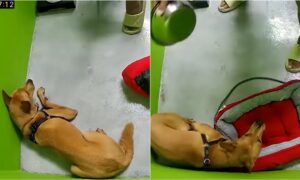“This post contains affiliate links, and I will be compensated if you make a purchase after clicking on my links.”
When you are looking to add a new dog to the family, it is essential that you find out first which dog breeds are best for your kids. Puppies and children go together like peanut butter and jelly. In fact, many owners can share a ton of happy, unforgettable memories of a childhood pet that had been a big part of their life.
But because every family is unique, there are a number of factors that you have to take into account before choosing the breed of dog that you want to care for. These include your family environment, the ages of your kids, your family lifestyle, activity level, and more.
Above all, what your family needs to consider is a dog’s calm and friendly attitude and a tolerant temperament. Although there are indeed the good and bad sides of each dog breed, some have proven themselves to be more suitable for families with children.
Breeds for Small Children
When you have toddlers at home, you probably want to avoid a tiny breed. Little dogs tend to be delicate which make them prone to easy injury. Well-meaning children can accidentally drop them, step or fall on them, or shut them in the door; thereby, making them unsuitable choices. Conversely, giant breeds are also not the best option as large dogs generally tend to be sturdy and robust. Although they are oftentimes laid back and tolerant, their sheer size can actually cause harm to very small children. You wouldn’t want your easy-going Mastiff to just knock your little kid down as it tries to play or merely say hello to him, right?
Since it is difficult to keep very small children from prodding, poking, or smothering a pooch with hugs and kisses, a medium-sized breed adored for their being calm and tolerant is the best choice here. These include the Boston Terrier, Beagle, Cocker Spaniel, English Bulldog, Corgi, Wheaten Terrier, and the English Staffordshire Bull Terrier.
Breeds for School-age Children
Because grade school children are bigger, stronger, and much more coordinated as compared to pre-schoolers, choosing the right dog breed for them is easier. Since they are also capable of understanding and following dog-care guidelines and, at the same time, show empathy to the pooch, very small or large dogs can both be suitable for them. To be specific, Airedale Terriers, Bernese Mountain Dog, Australian Shepherd, Boxer, Border Collie, Golden Retriever, German Shepherd, Irish Setter, Labrador Retriever, Jack Russell Terrier, and Schnauzer lines can be the great choices for them.
But, just as every dog is different, so is every child. As a parent, only you can make the right decision keeping both your child and your future dog’s best interests and safety in mind.













Ashley
Jul 1, 2015 at 5:43 pm
Annette, what a wonderful experience for those children! Did you train her to act differently around certain people or did she naturally pick up on it?
yessenia
Dec 28, 2013 at 11:42 pm
what bout the pitbulls !!
there about the most loving understanding dogs there is
sandy certalic.
Sep 6, 2012 at 4:12 pm
What about the large gentle newfenland, the international children’s dog.
Annette
Sep 6, 2012 at 10:45 am
We have a 2y/o Rottweiler who is excellent with all ages! When she is around children or the elderly she seems to since they are ‘fragile’ and becomes this super calm submissive beauty! Here are two of my best examples: First is my 90 year old neighbor, Phoebe (our dog) can be outside running and playing like a mad dog but when Mrs. E. comes out she immediately calms down, walk over to the fence and waits for Mrs. E. to call her up, she stands on her back legs and hangs her head over the gate to get her ears rubbed and spoken to in Spanish about what a pretty and good girl she is. Second I work with special needs children, everything from Autism to Down’s Syndrome, this summer I would meet our class at the park with Phoebe, to let the kids play with her, she lets them lead her on a leash, never pulling and will go where ever they take her, except when they started to go off the grass, Phoebe would stop and look back to see if it was okay to keep going, if I shake my head ‘no’, she stays put, if I give her a nod she knowsa it fine to keep going! More than 50% of our class is non-verbal so Phobe just follows what she senses they want to do. They lay on her, brush her, and laugh like crazy when she drools on them!
Sandy
Jun 20, 2012 at 3:16 pm
I have a bit of a rarer dog – a Rhodesian Ridgeback and he is incredible with children. He is an incredibly active dog (as is his breed) but the smaller the child the gentler he is.